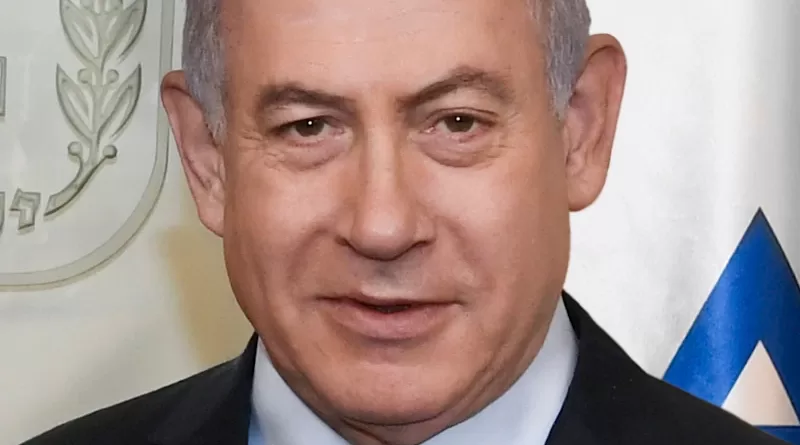Netanyahu’s Extremists Will Undermine Abraham Accords – OpEd
By Ray Hanania
The irrepressibly buoyant and resilient Benjamin Netanyahu proved his critics wrong when he forged a far-right coalition that dominated Israel’s elections last month and stormed his way back to power.
Netanyahu had to make a deal with the devil in order to win that election and, in so doing, help him achieve his real goal: To insulate himself from the corruption indictments that have dogged him in recent years.
But while this partnership with Israel’s right-wing and anti-peace parties will return him to the prime minister’s office, surrounded by some of the country’s most extremist politicians, it could also undermine the Abraham Accords, which, it was hoped, might open the door to peace between the Arab world and Israel.
Netanyahu’s incoming right-wing government is likely to be so anti-Arab and anti-Muslim that it might close the door on any new agreement that Arab countries might have been persuaded to join.
One premise that made the signing of the Abraham Accords palatable to the UAE, Bahrain and even Morocco was the promise by Netanyahu and Israel to set aside plans to annex the West Bank. But now the future of the West Bank and that promise are in jeopardy as Netanyahu’s new partners, who have clamored for annexation, are about to take a major stake in Israel’s government.
Netanyahu won the election by partnering with the ultra-Orthodox Jewish parties and eschewing any partnership with the center, isolating even the Arab parties that had agreed to work with Netanyahu’s rivals, including Yair Lapid.
More importantly, those right-wing religious parties will demand that the annexation of the West Bank be carried out and might even consider changes at Al-Haram Al-Sharif, where extremists have succeeded in entering the site, while Muslims were cordoned off during their visit.
The who’s who of Netanyahu’s coalition should worry the Arab world regarding his commitment to pursuing peace and his promise not to annex the West Bank.
Netanyahu plans to offer Aryeh Deri three ministerial positions, including interior minister. As interior minister, Deri will have the power to break the promise on annexation and his rhetoric in recent years has been to do just that. In fact, his political platform — and those of the other ultra-Orthodox political parties in Netanyahu’s coalition — is based on annexing the West Bank as soon as possible.
Netanyahu has given himself little choice, having won Deri’s support because of a promise to change Israeli law regarding government officials who have a criminal record. Deri was recently convicted of tax fraud and changing the law will remove any threat to his political career. Inside Israeli politics, the focus has been almost exclusively on how Netanyahu hopes to use the backing of his powerful ultra-Orthodox political allies to change Israeli law and undermine the corruption charges against himself, as well as to help Deri.
Netanyahu’s other partners are even worse. Religious Zionist party leader Bezalel Smotrich is slated for a role in the Defense Ministry, giving him control of building in the West Bank. Itamar Ben-Gvir, an extremist Israeli settler and leader of Jewish Power, which helped Netanyahu win a majority of Knesset seats, will take over national security and policing in the West Bank. Smotrich will have a mandate to accelerate the expansion of Israeli settlements, while Ben-Gvir will ensure those settlements will not have to worry about funding, military support or challenges from the Palestinians.
Netanyahu’s new government, when it is formally announced, should raise grave concerns for the Arab world, especially those countries that signed the Abraham Accords, as well as others that remain on the fence, hoping to see a new environment of peace to make their signing possible.
As witnessed in Qatar during the FIFA World Cup, Israeli journalists and officials were permitted to attend, but faced a cold shoulder. While many Arab governments were hopeful of building on the foundations of the Abraham Accords, ordinary people have been more skeptical of Israel’s motives. When covering the competition, Israeli journalists and politicians complained loudly that they were snubbed by officials, athletes and members of the public because of Israel’s abuses of Palestinian rights.
The Abraham Accords were designed to serve as a new off-ramp for the conflict, an updated roadmap around the Palestinians, rather than through them, to achieve peace. It made sense, of course, as the Palestinian political scene is plagued by strife and endless rifts, resulting in governmental impotence.
Even if the Palestinians wanted to make peace with the Israelis, they would be unable to do so because of the deep divisions and sometimes violent disunity. But that concern is now dwarfed by the extremists Netanyahu is placing in control and their determination to undermine the core foundation of the Abraham Accords, which is to halt annexation of the West Bank.
These quickly changing political developments and the rise of the ultra-right can only have a negative impact on what many hoped might be a path to the end of regional tensions.

